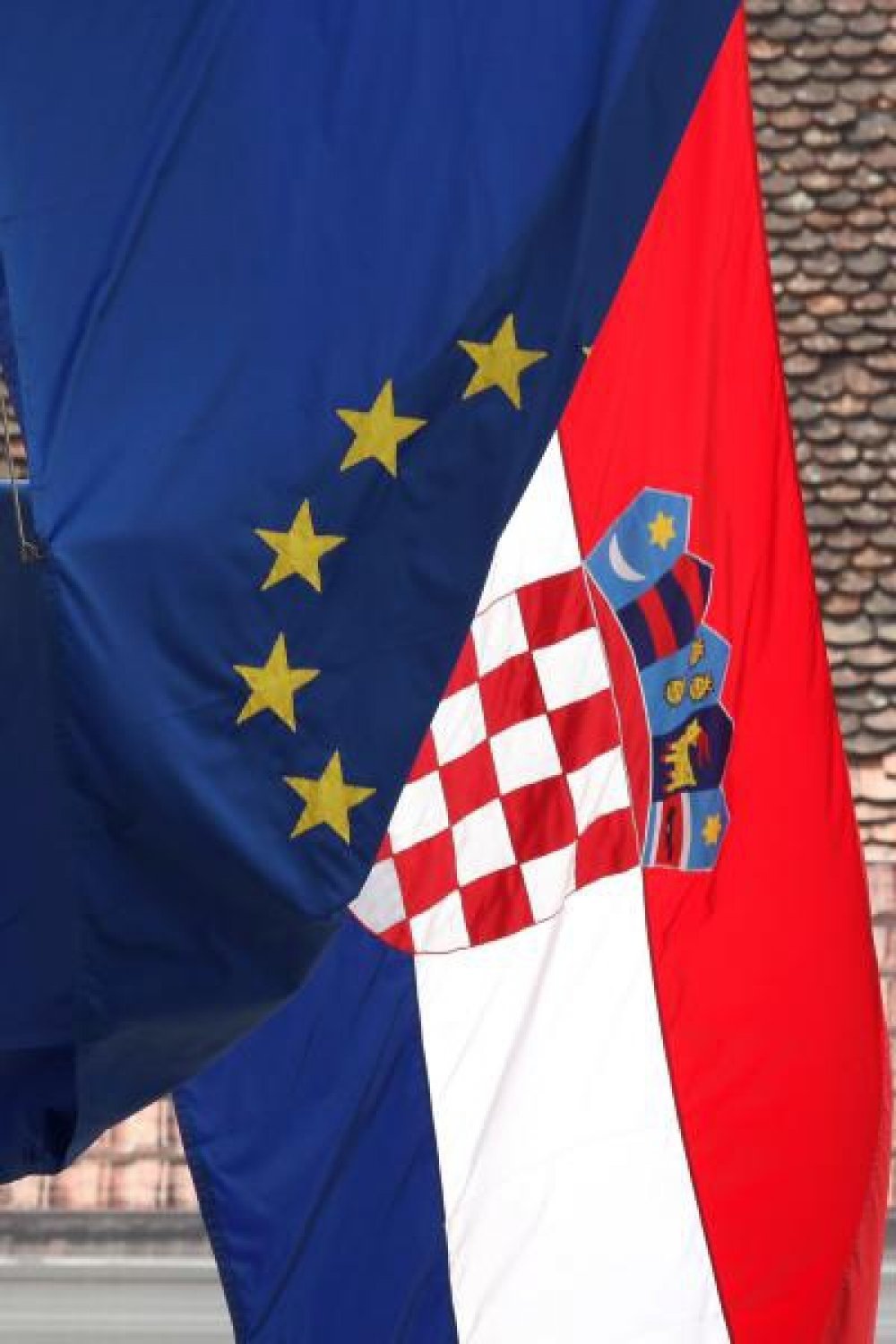Most Croatians believe that the country has a future in the European Union, they consider Germany the closest country to Croatia, and they are not particularly interested in other countries in the region joining the EU, according to the latest Eurobarometer survey.
The survey, entitled "Croatia and the EU", was carried out at the request of the Directorate-General for Enlargement, from November 28 to 30, 2011, and it covered 1,019 persons above 15. It was conducted after the completion of the country's accession talks, but before the December 4 parliamentary election, the December 9 signing of the Accession Treaty, and the January 22 EU entry referendum.
The purpose of the survey was to get an insight into Croatians' views of relations between their country and the EU.
The results of the survey should help and direct communication efforts during the last stage before Croatia's accession to the EU on 1 July 2013, the European Commission said.
The country which Croatians perceive as the closest to them is Germany (35%), followed by Slovenia (27%) and Austria (26%). At the same time, support among Croatians for the accession of neighbouring countries to the EU is very low. Slightly more than a half of Croatians (51%) support Bosnia and Herzegovina's EU membership, while all other candidate countries or potential candidates received support of below 50 percent.
The survey also shows that close to 60% of Croatians believe the country has a future in the EU, while 22% strongly disagree with that assertion.
People in the age group of 55 and above are the strongest proponents of the EU and the euro. Generally, young people are more sceptical about EU membership.
More than 40% of Croatians expect to personally benefit from EU membership, while 18% believe that it will be counterproductive for them, and 39% believe the country's membership in the EU would neither benefit nor harm them.
Two-thirds of the people polled believe that EU membership will be positive for the national economy and slightly less than a half believe the introduction of the euro will be positive as well. 81% of Croatians believe prices will go up upon accession to the EU.
More than three quarters of the respondents believe EU membership will bring more foreign investments and boost tourism, while almost three quarters believe the economic situation will improve.
Regardless of whether they support or oppose Croatia's EU accession, 80% of Croatians believe in the positive impact of accession to the Schengen area of free travel.
The survey also shows that Croatians like living in their country (89%) and believe in its future (78%). The forthcoming EU entry obviously has an impact on citizens' views about the country's future because 82% who believe that Croatia should be in the EU see the country's future in a positive light.
Croatians consider the EU a factor of stability in Europe.
They are mostly well informed about the EU, but they lack information on financial aid before and after accession. Women are generally less informed about the EU than men.
Two-thirds of Croatians have travelled outside Croatia several times in the last five years. Those who travel mostly travel to neighbouring countries, and those who do not travel state finances as the main reason.
Croatians trust foreign media more than they trust domestic ones. Overall, television is considered the most important source of information, while young people rely more on the Internet.































